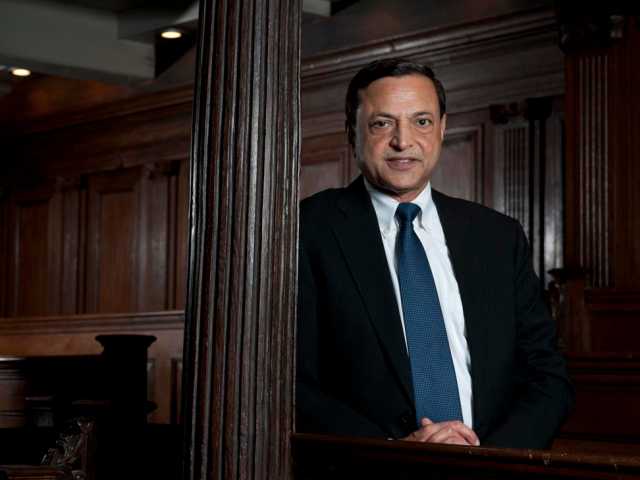Interview Ajay Kohli: What is academic impact?
| Date: | 19 July 2017 |

Ajay Kohli is the Gary T. and Elizabeth R. Jones Chair and Professor of Marketing at the Georgia Institute of Technology. He visited Groningen to give a keynote speech at the European Marketing Academy conference. The theme of this year’s EMAC conference was “Leaving footprints” and Kohli decided to focus on research impact: what it means, how to assess it, the impediments to having an impact, and what to do about them.
Q. Tell us about your keynote
A. The first question I address is: how do we judge impact? Research impact should be assessed by the change in the thinking and behavior of marketing stakeholders resulting from the research. These stakeholders include practicing managers, public policy makers, consultants (as intermediaries), and consumers. We often develop implications of our research, but often these are not the highest priorities of the stakeholders concerned. Moreover, we need to ask whether the implications of our research appeal to high-level executives or relatively junior managers.
The second question is about how we think of ourselves as a field. We talk in terms of doing behavioural research, or quantitative research, or managerial research. I argue that if we want to come up with really good insights then we have to immerse ourselves in the phenomenon that we are interested in. If we do not do that, then any sort of new knowledge that we come up with risks being superficial.
My third question concerns the way in which in marketing, we tend to take theories from other disciplines and try to apply them to our own. I think this is limiting. If we are to be a strong discipline, we need to have our distinctive subject matter and we need to have our own concepts and our own theories.
My final question is about methodology. We often prefer the latest, most complicated methods in our research. But by focusing on the methods, we limit the kinds of problems we are able to tackle. We short change ourselves by not tackling the real meaty issues that managers and policy makers struggle with, and in this way precision can work against impact.
Q. How can these meaty problems be identified?
A. We must immerse ourselves in the issues that managers, and policy makers and consumers are grappling with. Unless we bury ourselves in their lives, immerse ourselves in their struggles, we will not even be able to recognise what problems need to be solved. If academics simply want to sit in their offices and come up with research questions the odds of us even identifying what these issues are go way down.
Q. Impact is often demanded now by grant-awarding bodies, but what does it mean?
A. The question to ask is "Impact on what?" The obvious answer to that is impact on managers, public policy, consumers, and possibly other academics. There can also be impact on consultants who package the new knowledge and apply it with their clients in practice. So those are the constituencies that we want to impact. Another question is how to measure impact. We often use number of citations, but that it an imperfect measure, in part because it does not capture the extent to which research ideas influence practice.
Q. How would you explain marketing to someone outside the discipline?
First of all I would clarify that marketing is not just about advertising and promotions. Most importantly, marketing is about finding what issues or difficulties or aspirations consumers and customers have. It is then about how to address those questions so that consumers and customers are better off. Second, from a societal standpoint, marketing is about allocating firms’ resources in a manner that generates the highest possible return for those resources. That means focusing on the right customers and the right channels, so you do not waste your money, time, or energy chasing the wrong set for your product. The firm saves money, and the society in the aggregate benefits from that as well.
Q. What contribution to the discipline would you like to be remembered for?
A. Firstly, the work I have done with my dear friend and colleague Bernard Jaworski on market orientation. I could never have dreamt that it would have been received as well as it has been. What is less widely known is that I have a strong passion for theory construction. I have been doing workshops on this at some schools and I find it extremely rewarding. I engage with PhD students and faculty to discuss issues such as what exactly is a theory, what makes for an impactful theory, and what is the process by which we construct an impactful theory. It would be great if I could be remembered for trying to increase awareness of the importance of developing indigenous theory, and for enhancing our competence for doing that.
Sample research:
Kohli, A.K. & Jaworski, B.J. (1990), “Market orientation: the construct, research propositions, and managerial implications,” The Journal of Marketing, 1-18
Tuli, K.R., Kohli, A.K. & Bharadwaj, S.G. (2007), “Rethinking customer solutions: From product bundles to relational processes” Journal of Marketing 71 (3), 1-17
Jaworski, B.J., Kohli, A.K. & Sahay, A. (2000), “Market-driven versus driving markets,” Journal of the Academy of Marketing Science 28 (1), 45-54

